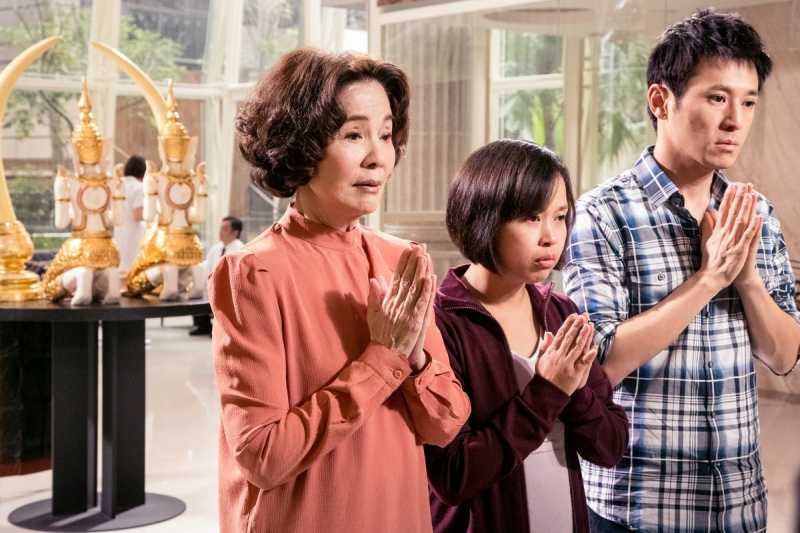When discussing or watching 【Baby Steps】, one must inevitably bring up Ang Lee’s The Wedding Banquet, which premiered 22 years ago. What hasn’t changed is how much effort queer individuals still have to put in for love and family acceptance. What has changed is this: in The Wedding Banquet, a gay man marries a woman to please his parents and unexpectedly has a child—almost an Ah Q-style fulfillment of the duty to continue the family line. In 【Baby Steps】, however, the same-sex couple actively seeks to have a child of their own, and—with their mother harboring her own hidden motives—they jointly plot to find a surrogate. The film reflects how technological advancement has transformed human reproduction in a very contemporary way.
What makes this film even more powerful is who they ultimately choose to carry the child, which brings into sharp focus the serious issue of domestic worker exploitation in Taiwan. One of the film’s most uncanny elements is Gua Ah-Leh, who looks almost exactly the same as she did 22 years ago. She recently appeared in Jolin Tsai’s moving lesbian-themed music video “We’re All Different, Yet the Same,” and has essentially become the LGBTQ+ community’s favorite mother figure. Once again, she’s seen worrying over her on-screen son’s romantic woes—poor woman.
The role of the domestic helper is played with subtlety by Golden Bell-winning actress Mo Ai-Fong. Interestingly, the situation her character faces in 【Baby Steps】 mirrors her role in the award-winning TV movie The Taste of Nyonya. Many Taiwanese still treat foreign laborers as lower-class servants, and sadly, the way domestic workers are treated has not improved—perhaps it has even worsened.
The film raises a hot-button question: should same-sex couples be allowed to have children by any means necessary? That’s something for anti-LGBTQ+ groups like the “Protect the Family Alliance” to debate. If they watched this film, they’d probably have a meltdown and go off on a tirade. But what I really want to say is: if the traditional Chinese belief that “of the three forms of unfilial conduct, having no descendants is the worst” doesn’t change, then it won’t just be heterosexuals (such as members of Taiwan’s most prominent family) who use their wealth and power to have three kids at once—desperate queer folks might also go to any length to have children.
The terrifying pervasiveness of discrimination, the abuse of class and human rights—perhaps these are the very parts of human civilization that most urgently need to be examined and reflected upon.

